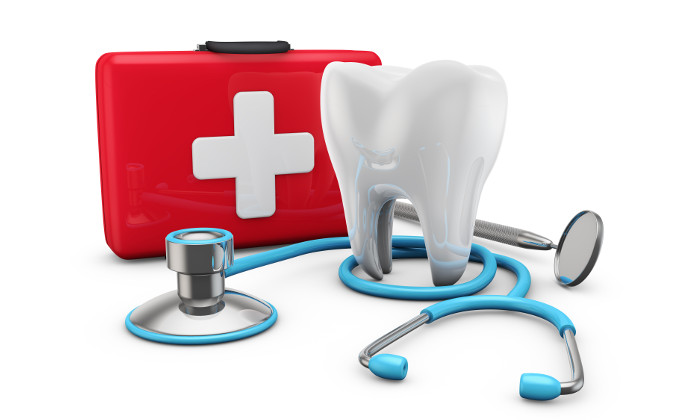Emergency Situation Dental Care: Fast Alleviation for Tooth Discomfort and Accidents
Emergency dental treatment is a critical component of maintaining dental health and wellness, particularly when unforeseen cases take place or extreme pain emerges. Comprehending the indicators that demand immediate focus can significantly affect outcomes, preventing more complications. emergency dental edmonton. Discovering the typical types of oral emergencies and the suitable feedbacks is necessary for notified decision-making throughout these essential minutes.
Comprehending Dental Emergencies
Oral emergency situations frequently occur without caution, requiring punctual attention to reduce pain and stop more issues. Comprehending the nature of dental emergency situations is critical for both people and healthcare providers to make sure effective monitoring. These circumstances can range from severe pain and trauma to infections that call for instant treatment.
One key aspect of dental emergencies is recognizing the indications that demand immediate care. Symptoms such as severe toothaches, swelling, or bleeding can suggest underlying concerns that, if left neglected, might result in severe health issue. Furthermore, trauma to the mouth, whether from sporting activities injuries or accidents, can create damages to teeth and bordering cells, necessitating speedy examination and treatment.
Prompt treatment not just relieves discomfort yet also preserves oral health. Patients are urged to look for instant care when experiencing unpleasant signs and symptoms, as delaying therapy can exacerbate the situation. Understanding the seriousness and possible repercussions of dental emergency situations encourages people to make enlightened decisions, eventually causing better outcomes and enhanced oral health and wellness. By prioritizing timely focus to dental crises, clients can decrease discomfort and safeguard their general well-being.
Typical Kinds of Dental Emergencies
Experiencing different sorts of oral emergency situations needs a detailed understanding of the conditions that require immediate care. Usual oral emergency situations can substantially impact a client's oral health and wellness and general well-being.
One prevalent type is a toothache, which may arise from abscess, periodontal, or decay illness. Severe discomfort commonly shows an underlying problem that calls for prompt intervention. An additional typical emergency is a broken or chipped tooth, usually created by injury or excessive pressure. This can lead to sensitivity and a raised risk of infection.
Knocked-out teeth stand for a critical emergency situation, where prompt activity is important for potential reimplantation. Conservation of the tooth in an appropriate medium, such as milk or saline, is crucial while looking for specialist assistance.
Furthermore, oral abscesses, defined by localized infection, existing as swelling and discomfort. These require urgent treatment to prevent the spread of infection.
Last but not least, soft tissue injuries, including cuts or lacerations to the periodontals, cheeks, or tongue, can additionally require emergency care. Attending to these problems promptly is vital in reducing difficulties and ensuring optimal oral health.
When to Seek Immediate Treatment

Accidents causing oral injury-- such as a knocked-out tooth, fractured or broke teeth, or injuries to the periodontals-- demand prompt treatment (emergency dental edmonton). When it comes to a knocked-out tooth, time is essential; it needs to be returned or kept in milk or saline and taken to the dental practitioner within an hour for the best opportunity of successful reattachment
In addition, prolonged blood loss from the mouth or any oral lacerations that do not quit might represent a more significant condition calling for prompt treatment. Oral swelling, particularly if it affects breathing or ingesting, is an additional red flag. On the whole, if you experience any type of unexpected adjustments in your dental health or physical pain that rises rapidly, look for prompt oral care to minimize potential problems and guarantee your well-being.
Taking Care Of Pain in the house
Efficient administration of oral discomfort in the house can significantly relieve discomfort while awaiting professional therapy. Several methods can be employed to attend to pain and lower swelling successfully.
Non-prescription analgesics, such as advil or acetaminophen, can supply momentary relief. Be certain to adhere to dosage guidelines on the product packaging to avoid unfavorable effects. Using a chilly compress to the beyond the cheek can likewise help numb the area and lessen swelling. This approach is especially efficient within the very first 1 day complying with an injury or beginning of pain.
In addition, keeping dental health is vital. Gently rinsing the mouth with cozy salt water can help minimize and cleanse the damaged area irritation. Clove oil, known for its natural analgesic buildings, can be used sparingly to the gum tissue location making use of a cotton ball for localized alleviation.
Staying clear of specific foods-- such as those that are hard, crispy, or cool or exceptionally hot-- can stop exacerbation of pain. Ultimately, making sure adequate hydration and rest will certainly support total recovery while awaiting expert dental treatment. These natural home remedy can give a substantial level of alleviation up until a dental expert can be sought advice from.

What to Expect at the Dental Expert
A browse Your Domain Name through to the dentist can investigate this site frequently provide anxiety, yet recognizing what to anticipate can ease problems and help with a smoother experience. Upon arrival, you will usually check in at the reception, where you may require to complete forms regarding your case history and dental issues. Following this, an oral assistant will certainly direct you to the examination room and take necessary radiographs, if applicable.
Once resolved, the dental expert will certainly perform a thorough exam of your teeth and gums. If you are experiencing discomfort or pain, be sure to interact this clearly, as it will help the dentist tailor the evaluation to your requirements. Depending on the findings, they may recommend treatments, which could entail filling cavities, carrying out extractions, or various other treatments.
After the procedure, the dental team will certainly provide aftercare instructions to aid handle your recuperation successfully. Bear in mind, open communication with your dentist is crucial to making certain a favorable experience and achieving ideal oral wellness.
Conclusion
In verdict, emergency dental treatment plays a crucial function in minimizing tooth pain and dealing with immediate dental issues. Individuals are urged to familiarize themselves with reliable discomfort monitoring methods at home, while also being prepared for the treatments that may be carried out by oral experts during emergencies.
Emergency situation oral treatment is an essential read here element of preserving dental health and wellness, especially when unforeseen incidents happen or severe pain develops.Oral emergency situations often emerge without warning, requiring prompt interest to reduce discomfort and prevent additional difficulties.In verdict, emergency situation oral treatment plays an important duty in minimizing tooth discomfort and dealing with urgent oral issues. Identifying the signs of oral emergencies and understanding when to seek prompt treatment can substantially impact oral health and wellness results. Individuals are motivated to familiarize themselves with efficient discomfort management strategies at home, while additionally being prepared for the procedures that might be embarked on by oral specialists throughout emergency situations.